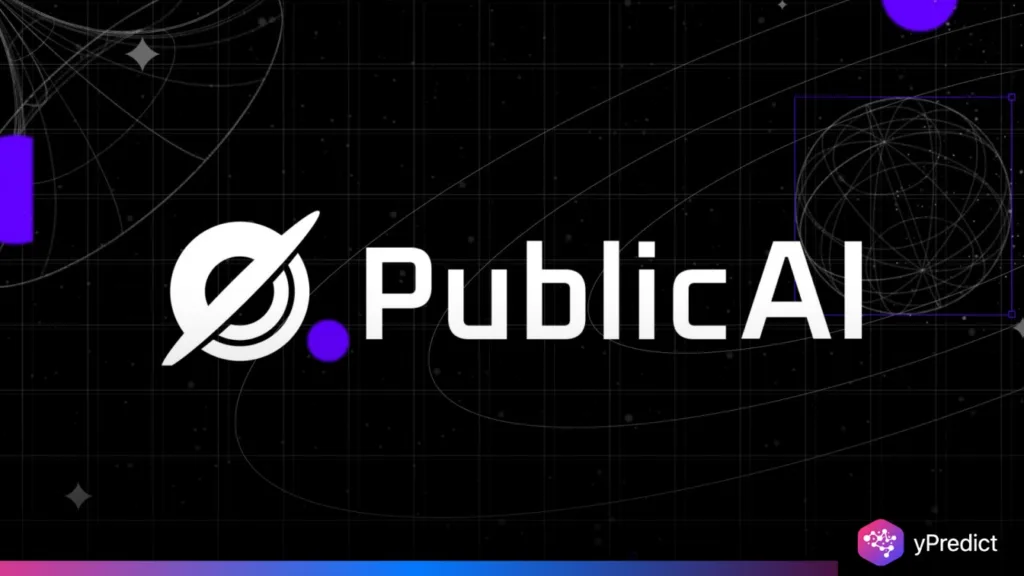
Abaka AI and PublicAI announced a collaboration with the 2077AI Open Source Foundation. In order to co-host the Project EVA, a worldwide challenge with a total of US$10.24 million. PublicAI and Abaka AI challenge us to think well beyond today’s AI by inventing adversarial tests. That reveals where these systems break down. PublicAI will play a pivotal role. By providing the human-validated data and human-in-the-loop perspective required to make AI more dependable and socially-conscious.
Project EVA (Evaluate AI) asks for more than cracking AI benchmarks. Instead of competing, the participants, who are known as Reality Architects, will be invited to devise new challenges to reveal blind spots. As well as limits in reasoning, and ways in which the top AI models fail. PublicAI is convinced that the future of AI needs to be founded not just on scale and performance. But also on a greater understanding and real human context.
The Human Layer of AI: PublicAI and it’s Contribution
PublicAI has been working for years to develop what it and its partners call the Human Layer of AI. It’s a distributed data infrastructure with more than 3 million participants from 200-plus countries. These contributors offer human-checked, culturally-sensitive information. The goal is to use authentic human experiences as the source of inputs to AI models. This is something that purely algorithmic or synthetic data cannot simulate. In Project EVA, PublicAI will source “hard questions” from real users. This is to help sharpen benchmarks like KOR-Bench and SuperGPQA, identifying blind spots where it matters most.
PublicAI’s infrastructure ensures contributors are compensated, building a sustainable, human-centred cycle of innovation. To be clear, PublicAI is not just collecting data. It’s attempting to create an ecosystem in which human input is appreciated and curated as well as leveraged to enhance the safety and fairness of AI.
PublicAI: Partners, Purpose, and Stakes
The Project EVA is a showpiece of 2077AI OSF. As part of the coalition, leading academic institutions, including Harvard, Stanford, and the Massachusetts Institute of Technology (MIT), had already teamed up with PublicAI and Abaka AI. Abaka AI takes care of the tech infrastructure. RemoExperts takes care of the registration and operates as a talent hub. The human contribution side is run by PublicAI, which, from the sound of it, is more of a software and services company.
The competition is deliberately adversarial: instead of merely rewarding problem solving, it rewards exposing where AI fails. This includes finding reasoning gaps, cultural bias, logical inconsistency, and failure under real-world complexity. Traditional benchmarks, in the view of PublicAI and its partners, are no longer enough. Models need to be stress-tested by unpredictable, creative, human-rooted challenges.
With $10.24 million in funding and participation open globally, Project EVA is both ambitious and inclusive. PublicAI is inviting “Reality Architects” from all over the world to participate. The stakes are high: the results could influence how AI benchmarks are set, how models are trained, and how future systems understand human diversity.
Why This Matters for AI’s Future
AI has achieved unprecedented scale, speed, and pattern recognition. Yet many models still stumble with complex questions that require human-level reasoning. And consideration of cultural context, fairness, or ethical edge cases. PublicAI and its partners seek to bridge the gap between the clean test environment of AI and what it can do in chaotic, unpredictable human environments.
EVA is more than a competition. It is a testbed for revolutionising AI evaluation. It implies that the advance of AI has to be informed by the human condition. With real-world, human-verified inputs from contributors at PublicAI, the goal is that AI systems will be stronger, fairer, and more attuned to the nuances of human existence.
Bottom Line
Project EVA is a defining moment in the development of artificial intelligence. PublicAI is reimagined for a global human layer, helping shift the focus from raw computational power. And benchmarks to AI systems that take into account, adapt to, and respect human diversity. As well as contexts, and limitations. With $10.24M in funding and heavyweight institutional partners, and a mission to illuminate AI’s blind spots, Project EVA has the potential to drastically alter the way we test AI in the coming years. If they are successful, PublicAI and its partners could help set the stage for AI. That is not just powerful, but truly aligned with human values and the complexity of the real world.






